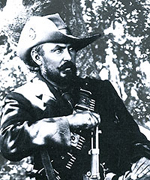Alfred Maphanga Duma


The great South African writer and activist, Ruth First, was assassinated by a letter bomb sent by the South African Security Police in Maputo, Mozambique on this day, 17 August, in 1982.
At a memorial meeting for Ruth First, after she was assassinated on the streets of Maputo by South African agents, Ronald Segal, another prominent exile figure and her close friend, described Ruth, as a “journalist, author, intellectual, teacher,” whose “whole life was essentially a political act.”


Mafika Gwala was a significant South African writer, who emerged in the 1960s and 1970s. A prominent activist of that era, he expressed the political needs and aspirations of all those victimised by apartheid. He was closely associated with the Soweto poets, Mongane Wally Serote, Mbuyiseni Mtshali, James Matthews and Mandla Langa. In 1973, he edited the Black Review, and his short stories, essays and poems have been published in numerous journals and anthologies. His poetry collections include Jo’Liinkomo (1977) and No More Lullabies (1982).

Universal Man: Jonathan Clegg “Sikeyi” (1953-2019). “Sikeyi” is a Zulu dance praise name: “The peg through a yoke that secures oxen in position, from Afrikaans juskei (juk: yoke], referring to the capacity of a formidable dancer to hold his stand.”
Louis Botha was born near Greytown in Natal in 1862. He was the son of Voortrekker parents and was brought up on a farm in the Free State, and was educated at the local German mission school.
